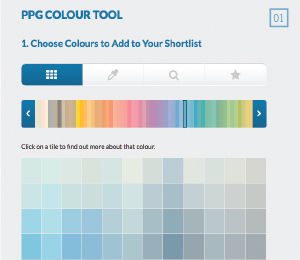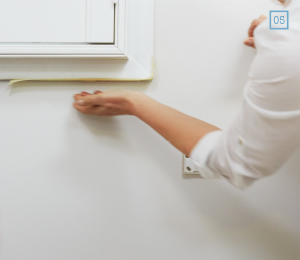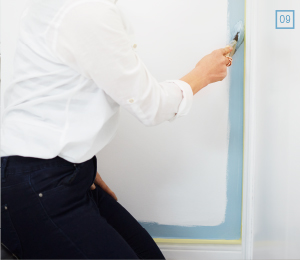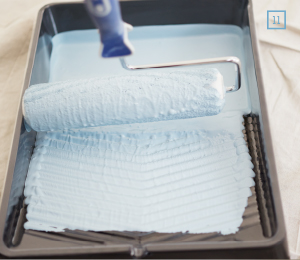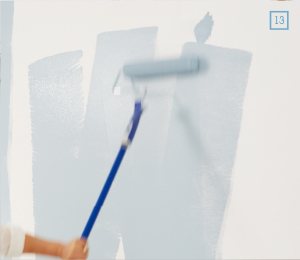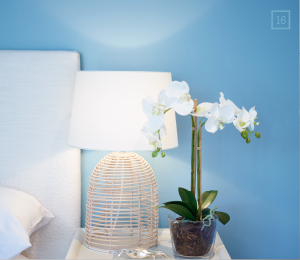Estimated Time
UNDER AN HOUR
Allow approx 20 minutes for
standard sized wall.
Materials
Here's what you're going to need:
*We estimate you’ll need 1L of paint to cover a standard sized wall. We recommend using PPG Paints Endure Interior Walls Low Sheen, also available in higher sheen levels, like semi-gloss, for higher traffic areas like kitchens or hallways.
Steps
- Determine the paint colour for your wall. Review our colour charts at your local paint or hardware store and visit our website for more colour inspiration. Remember to consider colours you’ve selected for doors, trim and ceilings when making your choice.
- The paint calculator, available on our website, will help you determine the quantity of paint required for the area you will be painting.
- Before you begin, make sure you prepare the wall for painting to achieve the best finish. Watch the How To Prepare A Wall video for tips.
- Place drop cloths on floors and on any furnishings that must remain in the room.
- Apply painter’s masking tape to fittings which can’t be removed and any edges which may be fiddly and difficult to paint around, such as skirting boards and fixed shelving.
- Once you’ve stirred the paint thoroughly, you’re ready to begin!
- Start with the edges of the wall using a technique called cutting-in. Partially load the angled paint brush in paint and remove any excess.
- Place the angled brush at the edge of the wall. Hold it like a pencil, placing some pressure on it. Begin by painting towards the top corner and working down towards the bottom.
- Use smooth strokes and cut-IN to corners. Working from the corners OUT will create a build-up of paint and a less than ideal finish. Cut-in all wall edges and then move onto rolling.
- Stir remaining paint in the can thoroughly before pouring into a paint tray.
- Dip half the roller into the paint tray, then roll back and forth in the tray to get an even coat of paint around the roller. Tap each side of the roller on the sides of the paint tray to remove any excess paint.
- Take the roller to the wall using a pole, making sure the roller is parallel to the surface.
- Paint the wall using either a W or M technique, starting a roller’s width out from the edge of the wall, and rolling from mid-height towards the ceiling, and then down towards the skirting. Each time this step is completed you should have enough paint on the roller to cover about a 1 metre width of the wall
- After completing half the standard wall, reapply the roller over any already painted areas, to remove excess paint and track marks for an even finish.
- Repeat these steps for each 1 metre width section of the wall until the entire wall is completed.
- Make sure you wait a minimum of 2 hours before painting a second coat, and remember to allow the second coat to dry completely.
TIPS FROM PPG PAINTS
- We recommend safely using a step ladder or an extendable roller pole when painting higher walls.
- A standard sized wall is approximately 4m2.














